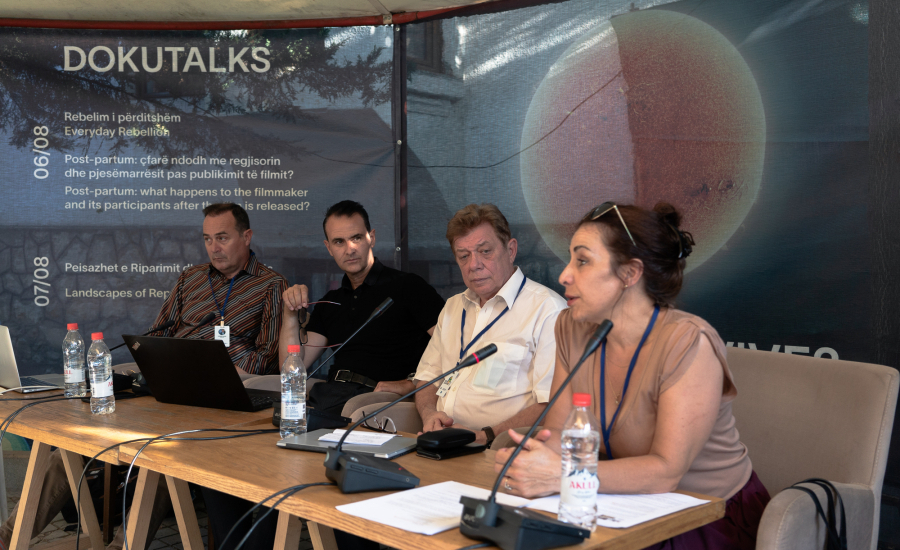08/08/2022
The variety of topics that come through the discussions in "DokuTalks" touch a wide spectrum of current issues. This afternoon, Dimiter Gantchev, Erkin Yilmaz, Ioannis Kikkis and Sophie Valais were present in the backyard of the "Shani Efendi" house, as representatives of various industries that affect or are affected by the issue of copyright.
The panelists discussed copyright as a current topic that is significantly related to the cinematographic industry in Kosovo and around the world. This panel discussion, which was held in cooperation with the EU in Kosovo within the framework of a project of the latter centered on this issue, had the purpose of familiarizing the attendees with the concept of copyright and the importance of this right.
First it was Dimiter Gantchev, who in his discussion emphasized the importance of copyright.
"We are at a film festival, one of the most expressive forms of creativity. But when we talk about creativity it is always difficult to define it since we are dealing with something very subjective. This is where the concept of intellectual property comes into play. The monetization of creativity brings a great benefit to the state as creativity brings income. In cases where an artist will not benefit from income from creativity, then this is something else, but if he is going to make money and live with it, then intellectual property becomes necessary. Obviously, societies have been creative even before the concept of intellectual property existed, but we now have to see what has changed. It is very easy to explain the economic importance of copyright. If you need to sell your artistic product, you should know that you need to be recognized as its owner in order to enter the market. Also to know the rules of the market. Copyright positions you in the market, that's why it's so important."
While in her speech Sophie Valais concretized the concept of copyright in cinematography.
"As we have discussed, the cinematographic industry is very important for a society in economic terms. Before we move on here we have an artist who first has an idea which he has to turn into a story and then make it into a film. Today technology is digital and this definitely changes things and makes the management process more complex. What we want to bring to attention is that the creators know their works and know how to behave in relation to their works in order to avoid the dangers that these works threaten."
This Monday's debate attracted interest from a specific target group of participants who did not hesitate to discuss with the panelists specific cases related to copyright issues. Both parties exchanged knowledge and experiences making this discussion quite fruitful.
By Ana Haxhimali
Photo Credits: Gerd Waliszewski



